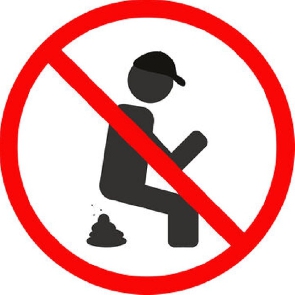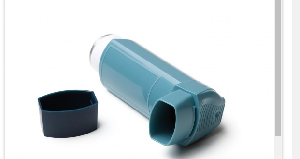Opinions of Friday, 6 October 2023
Columnist: Daniel Lartey
Ending open defecation in Ghana: The power of collaboration and media influence
Ending Open Defecation in Ghana: The Power of Collaboration and Media Influence
Call it a double-edged sword, and you won't be far from right. While open defecation continues to rear its ugly head on the agenda of sanitation watchers, it appears that collaboration and media influence are two edges of a sword that could get the canker to the slaughter.
Open defecation is a critical public health issue that affects millions of people around the world, including Ghana. While it poses a grave threat to human dignity and well-being, it appears that the fight against the menace in Ghana is gaining momentum. Thanks to the collaborative efforts of civil society organizations, corporate agencies, and interest groups like the Media Coalition Against Open Defecation (MCODe).
Open Defecation and the Battle So Far
Open defecation simply refers to the practice of relieving oneself in the open. This could be on fields, forests, or along riverbanks without proper sanitation facilities.
In Ghana, this practice has been deeply ingrained in some communities due to various cultural, economic, and infrastructural challenges. The latest statistics, according to the WHO/UNICEF Global WASH Monitoring Report, point to only 25% of people in Ghana having access to basic services, about 57% using shared or public facilities, and 18% still defecating in open defecation.
The consequences are severe, leading to the spread of diseases, environmental degradation, and a violation of basic human rights.
WASH-related diseases, including poor hygiene, accounted for 21 deaths per day, with almost one person dying from preventable WASH-related diseases every hour.
Civil society organizations (CSOs) and agencies like World Vision Ghana and the Greater Accra Metropolitan Area (GAMA) Sanitation and Water Project have over the years played a significant role in the fight against open defecation as they bring to the table resources, expertise, and a sense of social responsibility, and by collaborating with the Media Coalition Against Open Defecation (MCODe), they amplified their impact a notch higher. But there is more work.
Serving as a watchdog and shedding light on the realities on the ground through investigative journalism and data-driven reporting, MCODe's mission is not only to raise awareness but also to hold stakeholders accountable for their commitments to eradicating open defecation by 2030.
It is true that the media has the power to influence public opinion and, in turn, government policy. But it will take relentless reporting to put pressure on policymakers to take action. Media reports that showcase the human stories, health crises, and environmental degradation caused by open defecation have compelled authorities to allocate resources and implement concrete measures.
The call for more private sector investment in fighting open defecation does not come at a more opportune time than now.
Inter-regional collaboration is another clear pathway to success if Ghana must win the war on open defecation.
While some regions in Ghana have made significant strides in ending the menace, others continue to grapple with it.
Achieving a zero open defecation rate requires not only localized efforts but also inter-regional collaboration. Regions that have reported success can share their knowledge, experiences, and actionable strategies with those in need.
This exchange of ideas and strategies can lead to a faster and more efficient eradication of open defecation nationwide. Inter-regional collaboration encourages the standardization of best practices, facilitates resource sharing, and creates a sense of solidarity among regions striving to achieve the same goal.
These efforts align with Sustainable Development Goal 6 (SDG 6), which focuses on sanitation. Open defecation is a significant sanitation issue, and SDG 6 target 2 aims to ensure that countries eradicate open defecation by 2030.
In conclusion, the fight against open defecation in Ghana is a complex battle that requires the collective efforts of civil society, government, corporate agencies, and the media. MCODe's role in bringing the issue to the forefront and influencing policy decisions cannot be overstated.
As Ghana continues its journey towards achieving a zero open defecation rate in 2030, it is essential to recognize the transformative power of collaboration and media influence in shaping the country's sanitation landscape. By working together, Ghana can not only improve public health but also uphold the dignity and rights of its citizens.

The writer, Daniel Lartey, is a member of the National Working Group of the Media Coalition Against Open Defecation (MCODe)
News

'Always wait for me to land' - Watch CJ's clash with Thaddeus Sory during anti-LGBT+ Bill hearing
Sports

Watch highlights of Real Madrid's dramatic comeback win against Bayern Munich in UCL semi-final
Entertainment

'Fadda Dickson called Medikal to apologize while MzGee is still unapologetic' – Shatta Wale
Opinions






